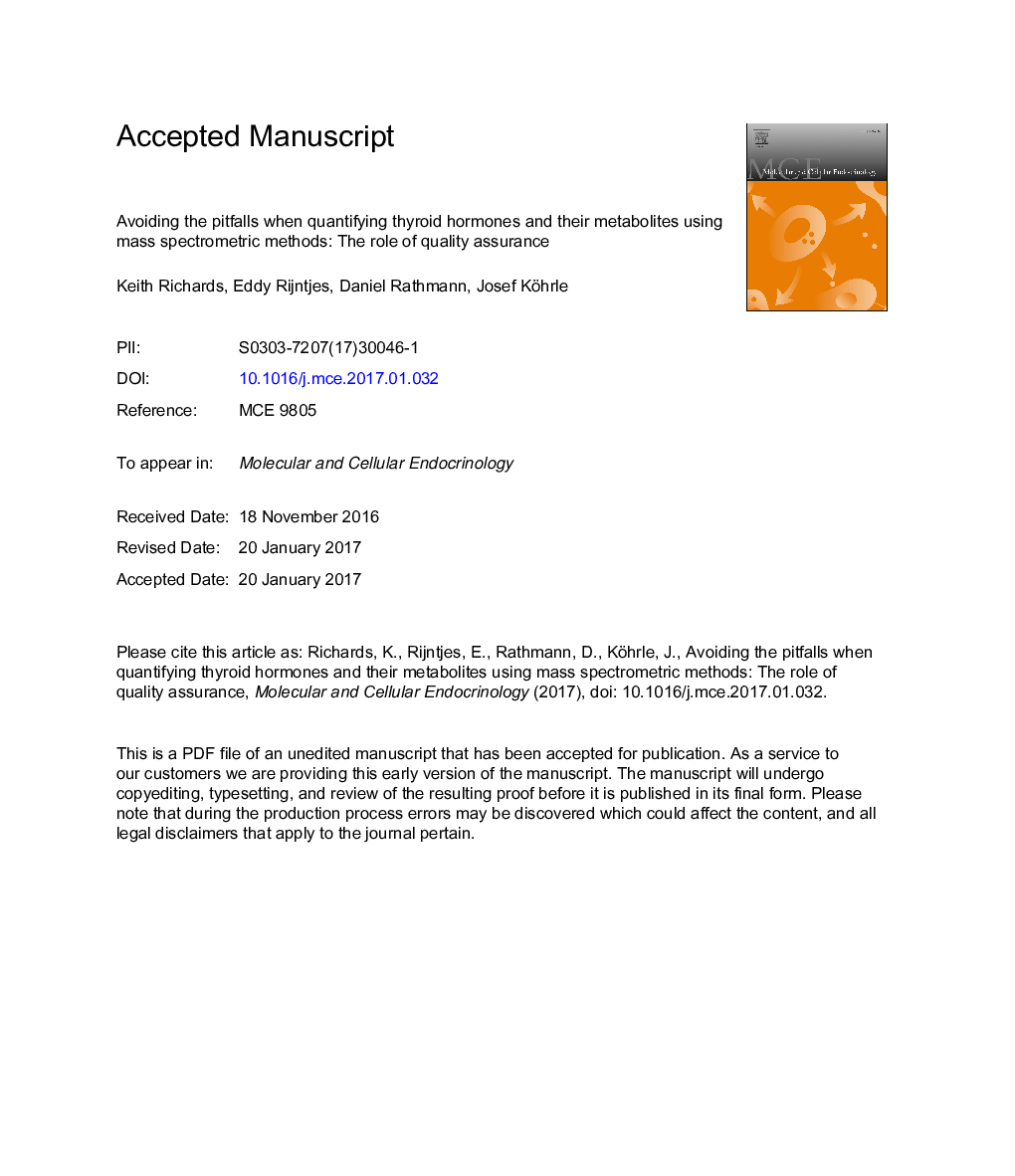| Article ID | Journal | Published Year | Pages | File Type |
|---|---|---|---|---|
| 8476645 | Molecular and Cellular Endocrinology | 2017 | 38 Pages |
Abstract
This short review aims to assess the application of basic quality assurance (QA) principles in published thyroid hormone bioanalytical methods using mass spectrometry (MS). The use of tandem MS, in particular linked to liquid chromatography has become an essential bioanalytical tool for the thyroid hormone research community. Although basic research laboratories do not usually work within the constraints of a quality management system and regulated environment, all of the reviewed publications, to a lesser or greater extent, document the application of QA principles to the MS methods described. After a brief description of the history of MS in thyroid hormone analysis, the article reviews the application of QA to published bioanalytical methods from the perspective of selectivity, accuracy, precision, recovery, instrument calibration, matrix effects, sensitivity and sample stability. During the last decade the emphasis has shifted from developing methods for the determination of L-thyroxine (T4) and 3,3â²,5-triiodo-L-thyronine (T3), present in blood serum/plasma in the 1-100Â nM concentration range, to metabolites such as 3-iodo-L-thyronamine (3-T1AM), 3,5-diiodo-L-thyronine (3,5-T2) and 3,3'-diiodo-L-thyronine (3,3â²-T2). These metabolites seem likely to be present in the low pM concentrations; consequently, QA parameters such as selectivity and sensitivity become more critical. The authors conclude that improvements, particularly in the areas of analyte selectivity, matrix effect measurement/documentation and analyte recovery would be beneficial.
Keywords
MS3LC-MSMRMCLIASPEISTDTHMSRMFDALLOQThyroid hormone metabolites3,3′-T2GC-MS3-iodothyronamine3,3′,5-triiodo-l-thyronine3,5-diiodo-l-thyronineLC-MS/MSm/zinternal standardSolid phase extractionELISAEnzyme-linked immunosorbent assayQuality assurancelower limit of quantificationIsotope dilutionLLODFood and Drug AdministrationMass spectrometryTandem mass spectrometryLiquid chromatography mass spectrometrylower limit of detectionmass/charge ratioselected reaction monitoringmultiple reaction monitoringThyroid hormonesImmunoassayliquid chromatographyliquid chromatography tandem mass spectrometryGas Chromatography-Mass SpectrometryIodothyronine
Related Topics
Life Sciences
Biochemistry, Genetics and Molecular Biology
Cell Biology
Authors
Keith Richards, Eddy Rijntjes, Daniel Rathmann, Josef Köhrle,
